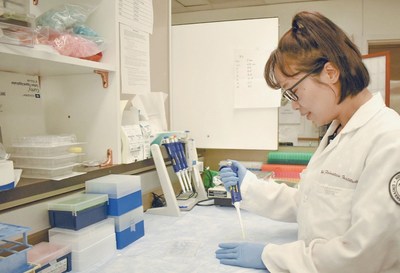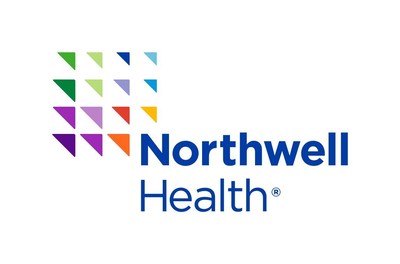Bioelectronic medicine shows promise to treat shock from extreme blood loss
|
MANHASSET, N.Y., Oct. 25, 2019 /PRNewswire/ -- Feinstein Institutes for Medical Research scientists published a review of a bioelectronic medicine strategy to treat hemorrhagic shock (HS) in the Springer Nature journal, Bioelectronic Medicine.
HS occurs when the body's cardiovascular system begins to shut down due to large amounts of blood loss. Injuries that involve heavy bleeding may lead to HS if the flow isn't stopped immediately. HS accounts for approximately 40 percent of deaths after sustaining a trauma, with up to half of those deaths occurring before the patient reaches a medical facility. Currently, intravenous (IV) fluid therapy and blood transfusions are the cornerstones of treating HS. However, these options may not be available immediately after injury, resulting in death or a poorer quality of survival. Furthermore, blood transfusions are typically not available in combat zones or remote areas. To better manage treatment for HS patients, improved strategies are needed. Feinstein Institutes researchers, including Chunyan Li, PhD, assistant professor at the Institute of Bioelectronic Medicine at the Feinstein Institutes, have been studying neuromodulation, which involves stimulating the nervous system to excite, inhibit or otherwise modify neural activity. "For a patient who sustained a trauma, hemorrhagic shock is a serious condition that could quickly lead to the patient dying," said Dr. Li, corresponding author of the paper. "More than 60,000 Americans die each year from hemorrhage, and new advances in bioelectronic medicine – particularly neuromodulation – have the potential to save many of these lives." Dr. Li and her colleagues conducted an extensive review of neuromodulation therapies, including trigeminal nerve stimulation (TNS), vagus nerve stimulation (VNS), phrenic nerve stimulation (PhNS) and electroacupuncture (EA). They note that these techniques could provide hemorrhage control and be lifesaving. For example, VNS, TNS, or EA could attenuate the immune response and reduce the need for antibiotics, which avoids the ever-increasing issue of antibiotic resistance and antimicrobial treatment failures, particularly in the fight against sepsis. TNS also shows signs of reducing the rate of blood loss in the body so that a patient may avoid a blood transfusion and its associated complications. These therapies could also be refined to work through the skin vs. having to be implanted, which leaves a wide range of future applications and mobility possibilities open for development. "Dr. Li and her team have done a great job summarizing the most recent findings on life-saving solutions as it relates to hemorrhagic shock," said Ping Wang, MD, chief science officer at the Feinstein Institutes. The coauthors of the Bioelectronic Medicine paper are Keren Powell, BA; Dr. Kevin Shah; Caleb Hao; Yi-Chen Wu, MS; Aashish John; and Dr. Raj K. Narayan. About the Feinstein Institutes Contact: Matthew Libassi
SOURCE The Feinstein Institutes for Medical Research |


